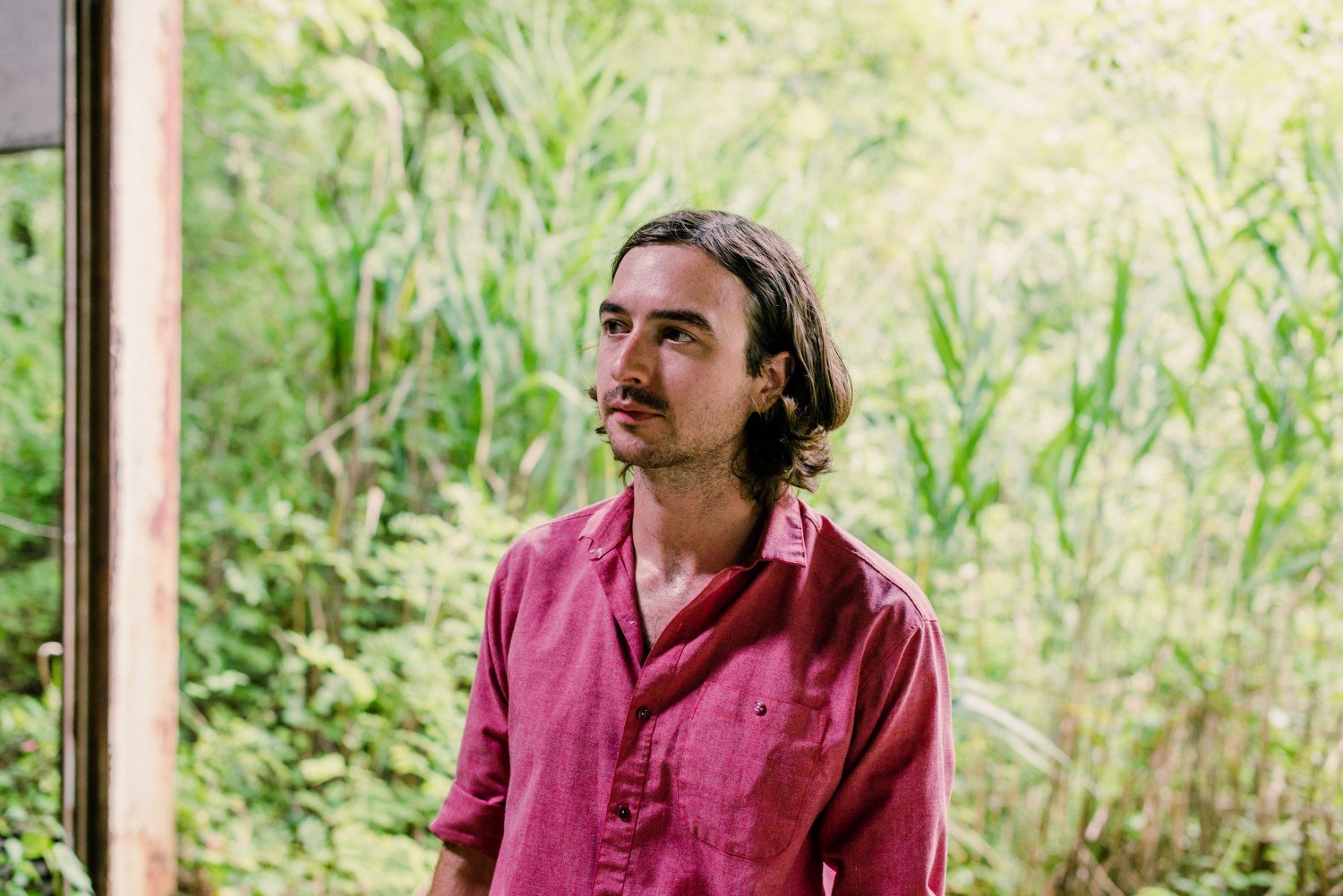Martin Courtney

Now that every record is a “big event”, it’s hard to figure out what really matters. Sometimes the quieter moments are things you connect with, and Martin Courtney (given name Martin Courtney IV), the frontman of Real Estate, just made an album of intimate moments worth treasuring.
After the 2014 release of Atlas, the third LP from Ridgewood, New Jersey’s Real Estate, Courtney started quietly chipping away at some new songs while he was waiting to head back on the road...
Now that every record is a “big event”, it’s hard to figure out what really matters. Sometimes the quieter moments are things you connect with, and Martin Courtney (given name Martin Courtney IV), the frontman of Real Estate, just made an album of intimate moments worth treasuring.
After the 2014 release of Atlas, the third LP from Ridgewood, New Jersey’s Real Estate, Courtney started quietly chipping away at some new songs while he was waiting to head back on the road with his band. The idea was that they would be his songs. They’d be a little more compact and concise, a little less abstract. “I was trying to do a straightforward pop thing,” he says.
It turns out that what Courtney actually means when he talks about straightforward pop is a collection of soft psychedelia that recalls the Kinks and Big Star even as it probes the depths of his own life as a family man, father, and touring musician. Many Moons is breezy, full of subtle introspection, an elliptical document of Courtney’s transition into family life and fatherhood, largely written while he was on the road. “My original goal for this record was to write songs about one specific idea and have that be that,” he says. “A lot of times with my songs in the past it was very abstract. A phrase would come into my head and I would have no idea what the song was about until months later.” You can hear the newfound clarity of his songwriting on “Airport Bar,” which finds Courtney wasting time waiting for his next flight, grappling with boredom and longing: “It’s half past two in the afternoon/ and I wish I could see your faces/ wondering where you are from an airport bar/ it’s a useless exercise but what’s time wasted.” It is a plain emotional sentiment, but it feels important and real.
After writing a couple tracks, Courtney realized what he was working on was slowly turning into a full LP, so he enlisted the help of Jarvis Taveniere of Woods to produce and play on the bulk of the record. He also brought in Real Estate’s keyboard player Matt Kallman, longtime friend Julian Lynch, and a whole host of others. Over the next year-and-a-half, the pair recorded sporadically. The result is an album that feels lush and calm, but with a newfound sonic clarity, a brightness often rounded out with orchestral arrangements. The instrumental title track is a bucolic, string and flute number that wouldn’t be out of place on a prime-era Pentangle record.
Courtney has long made a career of writing songs about what happens when your image of home is something you’re trying to hold on to, when the nostalgia that used to comfort you starts to feel unfamiliar, but on Many Moons, he’s moved through that. It doesn’t feel like a rejection of nostalgia, but an embrace of what’s ahead. It is an album-length meditation on his life right now, which is the type of exploration Courtney has become exceptional at.
You can hear the change in his arrangements, which still retain the laconic, squinting-at-the-sun vibe of the best Real Estate songs. On the musically upbeat but lyrically conflicted “Northern Highway,” he sings, “life out here can make you weary/folks at home all wishing well/I just wish I had you near me/I don’t stand a chance in hell,” cloaking his jetlagged exhaustion in a track that expertly straddles the line of longing and contentment.
Courtney’s always been an expert writer of restlessness and duality, with what it means to grow older with full awareness that he’s growing older. On “Vestiges,” his most lyrically dense piece of writing yet, he sings, “Black mold basements and fenced in yard/rhapsodizing in packed out cars/one can hope that it’s in the cards for you/ But this place is like a column of stone/many moons for it to grow/phases they will come and they will go.”
Like the rest of the album, the sadness inherent in this kind of remembrance creeps up on you, and then it starts to feel a lot less like sadness, and a lot more like loving embrace of a specific time. “I like the idea of being a musician, but I’ve always really not liked the idea of putting too much of myself out there,” he says. “I like the idea of disappearing into a band.”
Without a band to disappear into, Courtney made the kind of record that worms its way into your brain and becomes part of your life without you knowing it. “It’s always good to have some air in the room,” he says. Many Moons is the sound of Courtney looking at the life he’s built for himself, the success of his band, and taking a deep breath, letting all the pressure go and just working through the life that’s right in front of him.